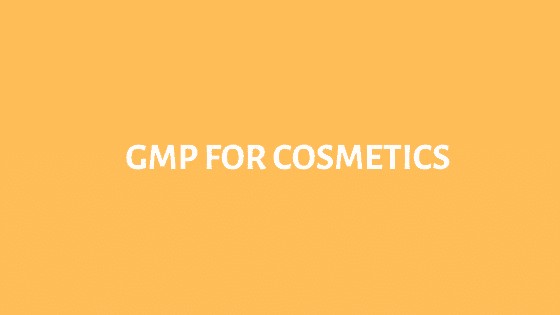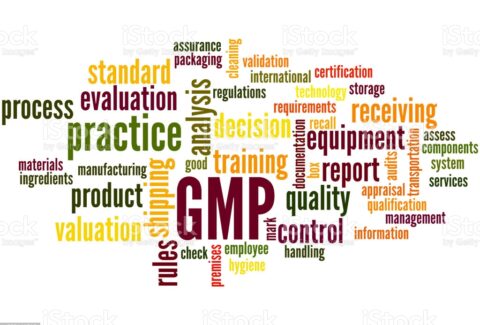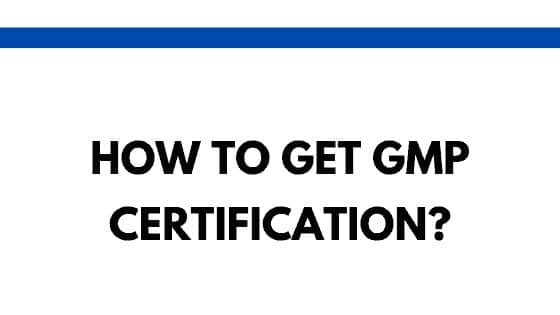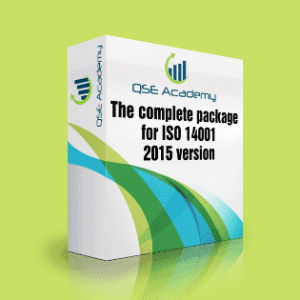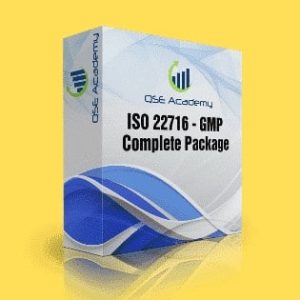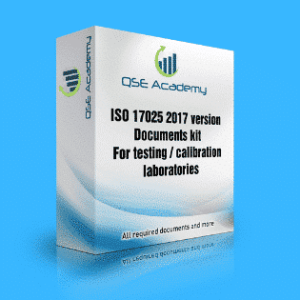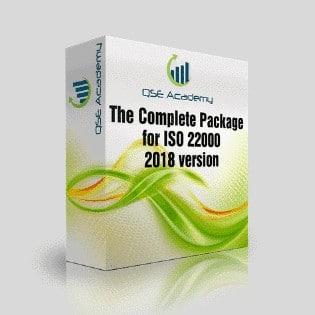GMP in Cosmetics Industry
Do you need to learn how to be compliant with Good Manufacturing Practices? Continue reading to find out exactly what you need to know.
The Good Manufacturing Practice “rulebook”, per se, was set by the ISO 22716. In this rulebook, the Cosmetics Regulation (EC) 1223/2009 states that all European cosmetics have to abide by the standards set in the Good Manufacturing Practice (GMP).
Remember:
This article is about the GMP standards for cosmetics, not for pharmaceuticals. Those standards are completely different and are not the subject of this article.
The basics of GMP standards for cosmetics.
GMP: What is it?
The GMP or Good Manufacturing Practices are guidelines set up for the express purpose to organize a practical solution to continue making cosmetics in the same way, every single time, in a safe manner. The measures it outlines in its guidebook ensure that the manufacturing process, storage, control, and shipping protocols remain the same, to ensure the quality of the product each time it is reproduced.
GMP Cosmetics Goals
The GMP practices for cosmetics have very specific goals that are outlined in their guidebook for your perusal. They include:
- Validation of the business management system is compliant with all regulations and rules associated with the European Cosmetics Regulation
- Make sure that they have access to the European market
Remember: The GMP rules for cosmetics are all about the overall quality of the product. They are not concerned, or a guide to environmental protection or employee safety.
Stakeholders Involved in the GMP
The stakeholders that should be concerned with the GMP are the ones who are involved in the manufacturing, storage, control, and shipping of the products. These stakeholders are usually product manufacturers, importers, exporters, and/or distributors.
Cosmetic Regulation 1223/2009 with the GMP
The GMP is required by the European Regulation 1223/2009, which in turn refers to the regulation ISO 22716 standard. This requires the manufacturers to create a declaration of compliance for their manufacturing facility, to its Product Information File (PIF).
ISO 22716 Standard Guidelines and the GMP
The ISO 22716 standard was created to maintain a standard of reproducibility and quality amongst the European market, regarding the production of cosmetics. All cosmetics that sell in this market must meet the GMP and Regulation 1223/2009 standards.
Below, the EcoMundo summarize for you, certain points in the ISO 22716 standard, regarding measures that will need to be adopted or maintained to remain in good standing with the GMP.
Remember: this is a summarized list of the standards. To read a fully detailed list, please go to the official ISO 22716 publication to be completely informed of the guidelines you must follow.
-
Staff
The company’s staff must be organized and structured clearly, to avoid any confusion about their official duties. All responsibilities and work that they complete during production, storage, control, and shipment of the products made by the company must be clearly defined. This means that all staff members must be properly trained in the appropriate skills and have explicit documentation in their file attesting to this, regarding manufacturing cosmetic products.
-
Premises
When it comes to the company’s premises, they must observe the following guidelines clearly:
-make sure the product is protected
-make sure all materials are regularly maintained, cleaned, or sanitized
-make sure that the product and raw materials are not mixed and/or contaminated
-make sure that all internal operations resume as they should with the products and materials
-
Equipment
The company equipment must be designed to carry out the following tasks:
-ensure that no contamination of the product ever occurs (this also includes shipping, even when moving the product between warehouses)
-ensure that the facilities are regularly cleaned and sanitized
-ensure that the tools and machines are regularly recalibrated and maintained
-
Materials and Packaging
When buying raw materials and packaging via other suppliers, companies must follow strict guidelines regarding quality. Their next step must be to then create a great supply chain with the constant communication, so that information flows freely and when a problem is found, it can be instantly solved. Store purchases and reception will be based on very strict guidelines (accurate labeling, very strict nomenclature, and verification), and will only be allowed to be performed by specifically trained employees. When it comes to the water that is used for testing, its quality will be insured by specific testing.
-
Manufacturing
If you want to create a great quality cosmetic product, then strict measures have to be put in place regarding its manufacturing process. These measures include:
-create accurate and specific documentation regarding the production of the product, down to its raw materials, equipment, and formula
-specify the quality control points
–label and number each batch accurately for identification purposes
-make sure to check the calibration and cleanliness of any equipment used to manufacture the product, before beginning the manufacturing process
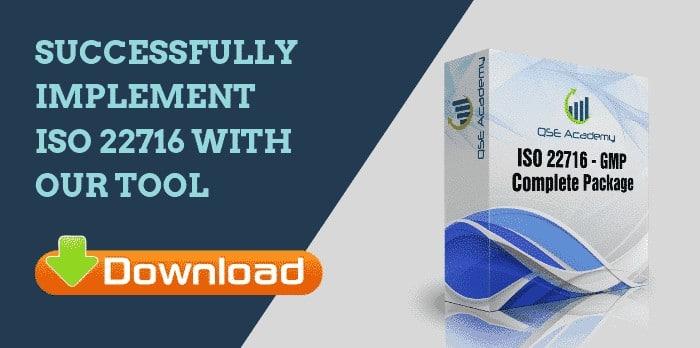
-
Final Product
The quality of the product must not only last throughout the manufacturing process, but also through storage, returns, and shipping.
To maintain this standard, strict criteria must be developed before the product is sold.
Storage rules also dictate that batches should be labeled and stored differently between returns, quarantined batches, and any other batches. This can be achieved by specific labeling.
-
Off Specification Treatment and Deviations
Use quality control to make sure that any products, raw materials, or packaging that do not meet the standard are rejected before being shipped to be sold. The items that fail to meet standards will be destroyed or recycled.
If a deviation is ever made regarding this protocol, it must be documented and justified, as deviations can lead to an overall decline in quality.
-
Waste
Different types of waste should be identified and properly disposed of by the company. It should also be an entirely separate division, with no bearing on production or control areas.
-
Subcontracting
Any time a company subcontracts out a specific job (testing, packaging, disinfecting, etc of the product), they should create an agreement in which the subcontractor still follows the guidelines outlined in the GMP and/or ISO 22716 standard.
-
Recalls and Complaints
All claims must be investigated to the following protocol:
-that preventative measures were taken against recurrence
-batches involved were verified
All recalls should be carried out by specifically trained personnel. If it is believed that a recall has certain health concerns for consumers, authorities should be alerted. All recall batches should be set aside and labeled until a verdict is reached.
If a subcontractor is involved, a decision on a process must be made and agreed upon by both parties.
-
Management Changes
Any change that could affect the quality must be approved and documented by specifically trained personnel.
-
Audits (Internal) and Service
To remain compliant with the GMP, internal audits must be made at every company. The company’s quality service will carry these audits out, and they are in charge of making sure every guideline in the ISO 22716 standard is carried out correctly, as well as making corrections to every misstep within the company.
External audits by 3rd parties are not mandatory.
-
Documentation
An up to date documentation system must be implemented to document any activity related to manufacturing, storing, control, and the shipping of all cosmetic products made by the company. This documentation can be anything from protocols to methods or instructions.
All of this documentation must be accessible to all, updated and signed regularly.
To comply with the Good Management Practices, you must follow these guidelines. Please read the full publication of the ISO 22716 for a more detailed guidebook to the regulations you must follow to keep your business compliant.
Looking for More Resources on ISO 22716?
If you found this article helpful, explore our premium resources designed to help you achieve ISO 22716 certification efficiently:
- 📦 Complete Documentation Package for ISO/IEC 22716 2017: Get all the essential templates and documents you need for fast, easy implementation.
- 🎓 Online Course on ISO/IEC 22716 2017 : Enroll in our comprehensive training to master the key concepts and practical steps toward certification.
- 📋 ISO/IEC 22716 2017 Checklist: Download our detailed checklist to ensure you’ve covered every step of the process.
These resources are tailored to meet your needs and ensure a smooth certification journey. Explore them today and get one step closer to success!

